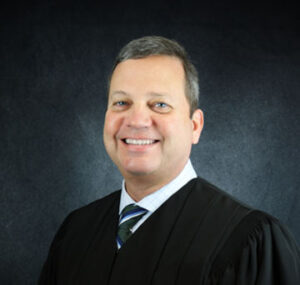As of this month, most Florida Citizens Property Insurance Corp. claims disputes will now be heard and decided by the state Division of Administrative Hearings, not in a court of law.
Officials at Citizens and at DOAH aren’t expecting a big influx of cases over the next few months, but they’re prepared if the numbers start to rise.
“We’ll hire more judges if we need to,” said Brian Newman, director and chief judge of DOAH.
That would probably require legislation. But for now, Newman is not too concerned about caseload after Florida lawmakers in December disallowed two big drivers of insurance claims litigation – assignment of benefits agreements and one-way attorney fees.
Before Senate Bill 2A was adopted, Florida property insurers took a number of steps to limit soaring litigation costs. One insurer now offers binding arbitration in exchange for premium discounts. Others have stopped writing roofs older than 10 years, to help avoid claims contending that wear and tear is storm damage.
Citizens’ plan to have administrative law judges hear cases was seen by many in the industry as a smart move after the state-created insurer was flooded with claims litigation in recent years. While Citizens was established by the Florida Legislature as an insurer of last resort, it has grown to be the largest property insurance carrier in the state, with twice as many policies as the next-largest carrier.

Citizens’ legal defense costs in 2022 were expected to top $100 million, corporation officials have said. In the first four months of 2022, Citizens was hit with more than 3,800 lawsuits, a number one Citizens’ official called “pretty crazy.”
The Citizens Board of Governors approved the DOAH policy endorsement last July and the Florida Office of Insurance Regulation approved it August. It took effect for new and renewing policies on Feb. 1.
By going to DOAH, Citizens expects to save significantly in legal fees and to speed resolution of cases. The endorsement notes that plaintiffs’ attorney fees are capped at $200 an hour, with no fee multipliers. And DOAH does not have the backlog of cases that many county and circuit courts have around the state.
Citizens cases last year took an average of about 430 days in the court system. That time frame is expected to drop to about 100 days at DOAH, partly because DOAH does not face such a backlog of lawsuits, Tim Cerio, Citizens’ former chief counsel, now CEO, said last year.
In 2019-20, the Division of Administrative Hearings handled some 6,300 requests, an 11% decrease from the previous year. And many DOAH requests are referred to mediation. Florida’s court system, on the other hand, in 2021 and 2022 saw roughly 4,500 lawsuits filed per month against the largest 16 insurance carriers, according to CaseGlide, a litigation management software firm.
Unlike binding arbitration decisions, DOAH judges’ rulings can be appealed to a Florida District Court of Appeals.
Either party, Citizens or the policyholder, may request that a claims dispute be heard by a DOAH judge.
 “We don’t expect an immediate surge of cases going to DOAH as the law applies to new policies and renewing policies after Feb. 1,” said Michael Peltier, communications director for Citizens. “These claims will have to run their course. Secondly, the DOAH provision is elective so either party can request.”
“We don’t expect an immediate surge of cases going to DOAH as the law applies to new policies and renewing policies after Feb. 1,” said Michael Peltier, communications director for Citizens. “These claims will have to run their course. Secondly, the DOAH provision is elective so either party can request.”
DOAH has two vacancies in its judges positions now, but Newman expects those to be filled by summer. The 30 DOAH judges normally handle a range of issues, including child support cases, mental health hearings, and disputes brought by businesses over state agency rules or over penalties assessed for violating regulations.
Newman doesn’t believe Citizens’ cases will be much different.
“It’s just another government entity,” Newman said.
Some plaintiffs’ lawyers have argued that the plan will hurt policyholders. By limiting attorney fees, fewer lawyers will be willing to take on the cases, and ALJs may not be familiar with the intricacies of insurance law.
The administrative law judges are all lawyers but some may have little experience in all relevant areas, claimants’ attorneys have argued. One former judge has suggested that an expanded roster of DOAH judges should include jurists with expertise in insurance claims disputes.
Topics Legislation Florida
Was this article valuable?
Here are more articles you may enjoy.



 Nine-Month 2025 Results Show P/C Underwriting Gain Skyrocketed
Nine-Month 2025 Results Show P/C Underwriting Gain Skyrocketed  Inside the Toxic Legacy of Georgia-Based Mulitbillion-Dollar Carpet Empire
Inside the Toxic Legacy of Georgia-Based Mulitbillion-Dollar Carpet Empire  The $3 Trillion AI Data Center Build-Out Becomes All-Consuming for Debt Markets
The $3 Trillion AI Data Center Build-Out Becomes All-Consuming for Debt Markets  Uber Jury Awards $8.5 Million Damages in Sexual Assault Case
Uber Jury Awards $8.5 Million Damages in Sexual Assault Case 


